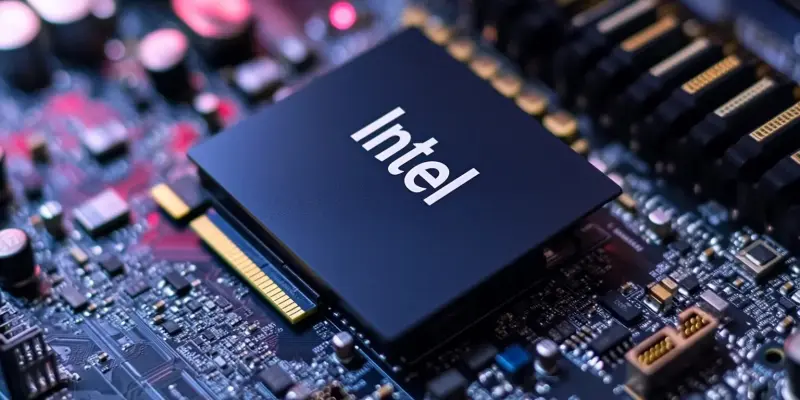In a recent deep dive into the performance issues surrounding Intel’s Core Ultra 200S Arrow Lake desktop processors, the company has taken significant measures to address concerns that arose following its October launch. Upon its release, the processor line disappointed many users, particularly gamers, with its underwhelming performance. The discrepancy between user experiences and Intel’s internal tests ignited a wave of feedback, prompting an extensive investigation. Intel was quick to respond, identifying five key areas causing the performance shortfalls, which included missing system packages, performance optimizers not functioning, unexpected error screens, and misconfigured motherboard settings. Intel’s proactive approach reflects its commitment not just to innovation, but also to maintaining rigorous performance standards for its products.
Root Cause Analysis
Intel’s investigation identified five distinct issues that collectively contributed to the degraded performance of the Core Ultra 200S CPUs. The first problem was a missing Performance & Power Management (PPM) package, crucial for optimizing energy efficiency and maintaining balanced performance levels. Without this package, the processors couldn’t manage the power and performance dynamically, leading to significantly lower output. The second issue highlighted that the Intel Application Performance Optimizer (APO) was not being correctly applied. The APO is designed to fine-tune applications, ensuring they deliver optimal performance on Intel hardware, and its malfunction substantially hindered the CPU’s capabilities.
Another major disruption was the occurrence of Blue Screen of Death (BSOD) errors when launching games using Easy Anti-Cheat software. This issue greatly impaired the gaming experience, often causing abrupt interruptions and system crashes. The fourth problem centered around misconfigured performance settings in the BIOS used by reviewers and early adopters. Incorrect or suboptimal BIOS settings can severely limit the functionality and performance of a CPU. Lastly, Intel identified an area for enhancement in new BIOS performance optimizations, scheduled for addressing in a forthcoming update.
Resolution Measures
Intel has taken swift and comprehensive steps to resolve the identified issues. The first two problems, the missing PPM package and the non-functional APO, were addressed through updates to Windows 11. Users are required to upgrade to build 26100.2314 or newer to solve these issues. This update restored the necessary packages and ensured that the APO operates correctly, thereby improving the overall performance. To address the BSOD errors, an update to the Easy Anti-Cheat driver was deployed directly through the games using this software. This quick fix mitigated the crashes and allowed users to enjoy a more stable gaming experience.
The misconfigured BIOS settings posed a challenge, as they required updates from motherboard manufacturers as well. Intel worked closely with these manufacturers to develop and release BIOS updates that optimized settings for the Core Ultra 200S CPUs. Users are urged to update their motherboard BIOS to the latest version to fully benefit from these performance enhancements. While four of the five issues have been resolved, the final issue regarding new BIOS performance optimizations is slated for a January 2025 update. Intel has promised that this forthcoming update will focus on further boosting overall performance and refining system efficiency.
User Expectations and Future Improvements
Following the application of available updates, Intel assured users of observable improvements in CPU performance, specifically in gaming. The initial measures are expected to result in performance gains of around 5%, with variations depending on individual system configurations. This restoration of performance has been an essential step to align real-world use cases with Intel’s internal testing results. Intel’s candor in sharing the details of these issues and their resolutions has been appreciated by the tech community, underscoring the company’s commitment to transparency and continuous product enhancement.
Looking ahead, Intel remains dedicated to further optimizing the Core Ultra 200S processors. The scheduled January 2025 BIOS update is anticipated to deliver a more consolidated and refined performance. These additional optimizations will target areas that require fine-tuning to maximize the CPU’s potential fully. Intel’s ongoing commitment to addressing performance bottlenecks and improving user satisfaction has been a key takeaway from this entire process. The company’s methodical approach in resolving these issues demonstrates its flexibility and responsiveness to user feedback, enhancing the trust and reliability of its products.
Conclusion and Next Steps
Intel has moved quickly and thoroughly to resolve the identified issues. For the first two problems, the missing PPM package and the non-functional APO, updates to Windows 11 were implemented. Users need to upgrade to build 26100.2314 or later to fix these issues. This update brought back the necessary packages and ensured that the APO works correctly, thus improving overall performance.
To address the BSOD errors, an update to the Easy Anti-Cheat driver was rolled out through the games using the software. This quick fix reduced crashes, providing users with a more stable gaming experience.
Misconfigured BIOS settings presented a challenge since updates from motherboard manufacturers were required. Intel collaborated closely with these manufacturers to develop and release BIOS updates optimizing settings for Core Ultra 200S CPUs. Users should update their motherboard BIOS to the latest version to fully benefit from these performance enhancements.
Four of the five issues have been resolved, while the final issue concerning new BIOS performance optimizations is set for a January 2025 update. Intel has promised that this upcoming update will boost overall performance and improve system efficiency.

